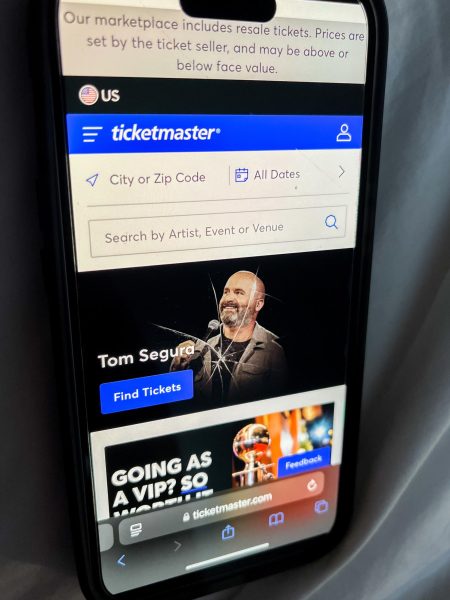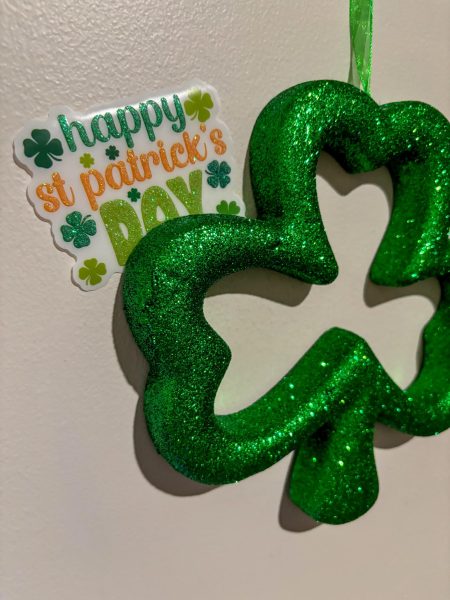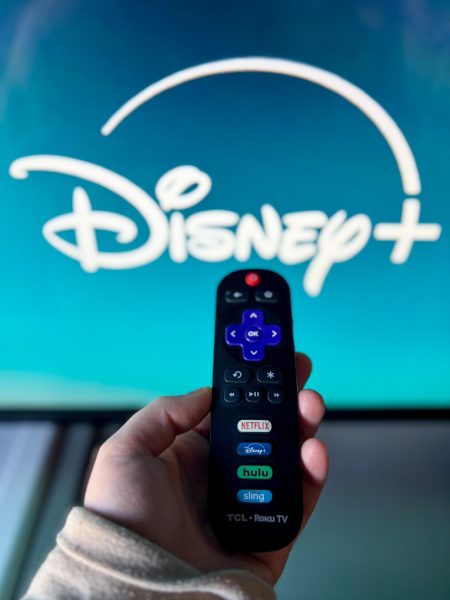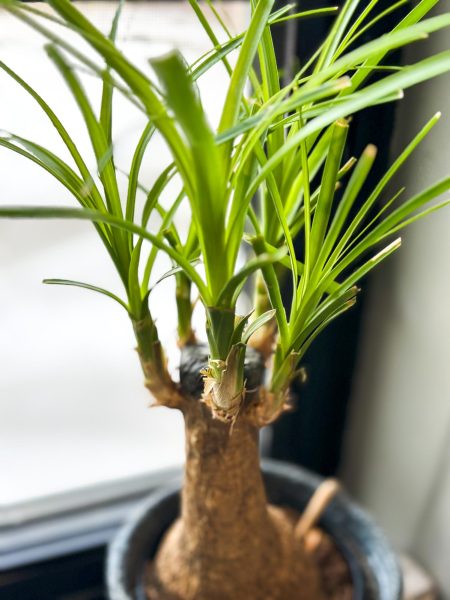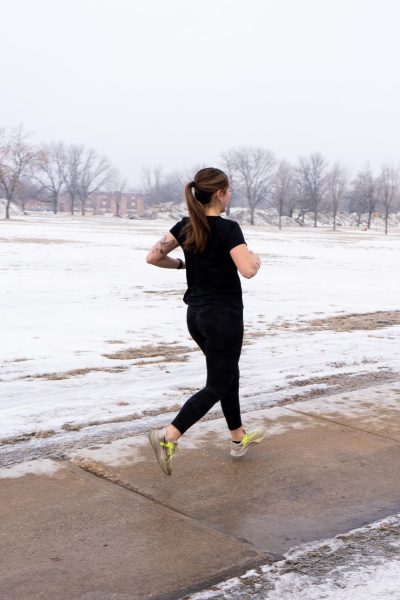Things I’ve done and learned
Photo courtesy of news.vanderbilt.edu.
Saturday April 25, I attended Green Dot training. The Green Dot program here at UND is sponsored by the Dean of Students, and our training was the first.
Green Dot is an incredibly valuable addition to our campus security initiatives and was a practical, thoughtful experience for me — but also one that made me think more generously about violence and how normalized some aspects of it have become for me.
The program is, at its most basic reduction, a bystander intervention strategy. More specifically (and, on college campuses, more crucially), the program recognizes how important social capital is in identifying and preventing instances of power-based personal violence.
Power-based personal violence (PBPV) is violence that “is a form of violence that has as a primary motivator the assertion of power, control and/or intimidation in order to harm another.” Using alcohol and/or drugs to manipulate, control, or hurt a person is also a form of power-based personal violence. This violence is perpetuated with the intent to subordinate and lessen the value of another person, and can manifest itself directly or more duplicitously. Forms of power-based personal violence include sexual assault, intimate partner violence, stalking and targeting or bullying an individual, and may be committed by partners, friends, acquaintances or strangers. Our training focused largely on sexual assault, intimate partner violence and stalking.
For reference:
According to the Department of Justice, in 80 percent of all rapes and sexual assaults of college students, the offender is known to the victim. Another 80 percent of assaults remain unreported.
College students also report having been subjected to dating violence by their partner (21 percent according to a 1996 study), and a 2002 study reveals that 40 percent of gay and bisexual men are victims of intimate partner violence.
Violence is indiscriminate and affects people simply because they are people. I don’t think there was a single individual in our training of over 20 students who had not either themselves been directly affected by power-based personal violence; or who knew someone who had been violated or harassed.
Point being: UND is not free from violence, nor is it immune from the effects of power-based personal violence.
Practicalities and vocabulary out of the way, the Green Dot program is accessible, broadly applicable, and not an over-commitment — three factors that make it an effective strategy for students. It equips trainees with three potential responses to observed instances of PBPV (e.g. witnessing an assault) but also teaches them how to recognize potential occasions of further violence (e.g. someone leading an obviously intoxicated or incapacitated individual to an isolated area).
At the end of a single training, students understand what PBPV is, how it manifests itself, what different instances of PBPV are and how to counter violence capably and effectively. They are conscious of how different forms of violence reveal themselves in different relationships and with different people. Competently, assuredly, they may now negate red dots (an assault, a hit, a passive acceptance of another person’s violence) and replace them with a green dot.
In short: A program like this is absolutely necessary.
I received a scholarship last year… The process has been extraordinary, and humbling, but I am always conscious of the fact that my scholarship only exists because another woman was raped and murdered. As a recipient of that award, I assume a responsibility to negate violence where I see it and to create, in whatever limited and small way I can, a space of safety. Somewhere to exchange grievances, and frustrations, and anger, but also somewhere that welcomes the opportunity for change. This may be in my writing, it may be in leadership positions, it may be in whatever small voice I have in classrooms and in meetings for coffee, but I believe — have to believe — in the mighty soul of kernels. Kernels of consciousness, kernels of change, kernels of movement or popcorn. Patience is difficult when you’ve been hurt; patience is even more difficult when you see someone you care for deeply drowning because of another individual’s entitlement or anger. This year — my last, best year at UND — has seen a lot of me rethinking the way I excuse violence. Sometimes, people need to lie down, be like a cat and heal themselves. More often than not, however, they need reinforcement — knowledge that their experiences and pain are valid and valued, and there is a multiplicity of voices that refuse to excuse or apologize for violence. The Green Dot program does this, and it does it well and without noise. It is quietly, consistently appreciative of the terror and difficulty PBPV creates for victims and for others, and (for that reason and for many others) a desperately needed and for me absolutely welcome addition to our campus. I will leave here largely unburdened because of it.
Available resources for students, staff, and faculty who have experienced power-based personal violence (courtesy of UND Dean of Students:)
Confidential Options (on campus):
UND CVIC Confidential Advisor
701.777.6550
Available to help UND students, staff and faculty who have been victims of sexual violence, such as sexual assault, domestic violence, dating violence and stalking.
Campus Hours:
Mondays 8:00am – 4:30pm
Wednesdays 12:30pm – 4:30pm
Thursdays 10:00am – 2:00pm
Fridays 9:00am – 1:00pm
University Counseling Center
701.777.2127
Offers a variety of services to UND students including short-term counseling (such as group, individual and couples counseling), alcohol and other drug counseling and career counseling.
UND Student Health Services
701.777.4500
Provides free office visits, on-campus, for sickness and injury (extra charges for lab, radiology, pharmacy, and special procedures may apply). Staffed by highly qualified, board certified, medical professionals.
Other Options
Dean of Students Office
701.777.2664
Assists students in reducing barriers to their success. Services include: help with filing complaints, issuance of no contact directives, special circumstance late drop/withdrawal, and assistance with adjusting academic schedules
Title IX Coordinator
701.777.4171
Oversees the UND Title IX process regarding discrimination and harassment of students, faculty, staff and visitors based upon sex. Sexual harassment includes sexual violence, such as rape, dating violence, domestic violence, stalking, sexual abuse, sexual assault and sexual coercion.
University Police Department
701.777.3491
The University of North Dakota Police Department protect and enhance the quality of life for all who live, work or visit our community.
Women’s Center
701.777.4300
The UND Women’s Center provides advocacy and support services for students, staff and faculty; however, they are bound by the reporting obligations of Title IX.
Off Campus
Confidential Options
Altru Hospital
701.780.5000
Provides medical services at an off-campus location. A Sexual Assault Nurse Examiner (SANE) is available 24/7 to collect evidence after an assault.
Community Violence Intervention Center (CVIC)
701.746.0405
Services are available to help victims of violence with protection orders, shelter, counseling, etc.
Maggie O’Leary is the multimedia editor for The Dakota Student. She can be reached at mary.oleary@my.und.edu.





